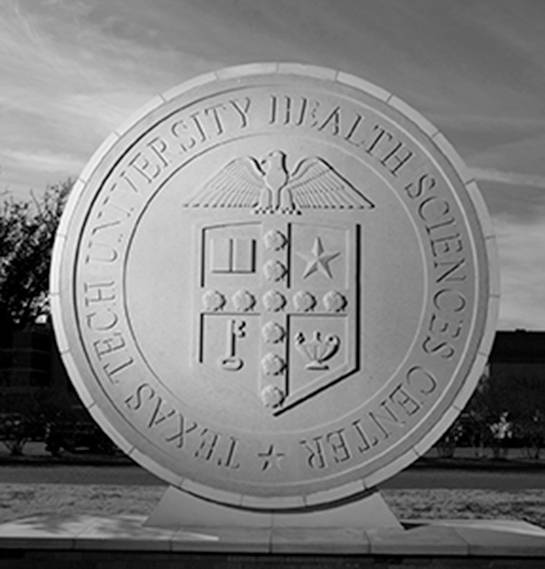Mental Health Checkup

When people say mental illness, they often think of it as something easily controlled
or changed, like an emotional reaction to a bad day. This is not the case. It’s a
health condition. We need to respond to it as such.
Sarah Wakefield, M.D.
Department Chair, Professor School of Medicine Department of Psychiatry
TTUHSC leads collaborative efforts for greater access to mental health care
Mental health disorders, also called mental illness, are a wide range of conditions that affect mood, thinking and behavior. Nearly, one in five adults live with a mental illness, which means millions are affected each year. Even still, mental health is often misunderstood, according to Sarah Wakefield, M.D., chair of the Texas Tech University Health Sciences Center (TTUHSC) School of Medicine Department of Psychiatry.
“When people say mental illness, they often think of it as something easily controlled or changed, like an emotional reaction to a bad day,” Wakefield said. “This is not the case. Mental illness is another inflammatory or hormone-mediated condition like diabetes. It’s a health condition. We need to respond to it as such.”
TTUHSC provides innovative and collaborative solutions to not only reduce mental health stigmas, but also transform mental health care across the region.
Here are some examples:
TTUHSC has been integral in data collection for a community-wide initiative in Abilene called Thrive ABI, created to drive and measure action toward community vision for a thriving Abilene.
One phase in the initiative is to identify and prioritize rising issues that the community deems important — one of the areas is a focus on health and wellness.
A primary aspect of this is increasing awareness, access and affordability to mental health care. With the help of TTUHSC public health experts, Thrive ABI is in the process of taking next steps in providing access to mental health resources for the community.
In the growing field of addition medicine, there is an incredible need for specialists across the country. TTUHSC has the only addiction psychiatrist in the region. Amy Stark, M.D., is a 2013 TTUHSC School of Medicine graduate and physician in the Texas Tech Physicians Psychiatry Clinic. She also serves as an associate professor in the school's Department of Psychiatry, training the next generation of providers. With her specialized expertise, TTUHSC is able to provide support to those with substance use disorders with innovative health solutions.
The Department of Psychiatry in Amarillo also utilizes transcranial magnetic stimulation (TMS) for mental health care solutions. In Amarillo and Lubbock, physicians who choose TTUHSC for their psychiatric residencies have exposure to this cutting-edge technology and learn in diverse clinical settings, including telemedicine, rural medicine, in patient units and much more. Physicians leave as well-rounded psychiatrists with training in innovative health care treatment options, which prepares them to make a lasting impact in psychiatry.
The Texas Tech Mental Health Initiative is a collaborative effort between TTUHSC and Texas Tech University and community partners. The initiative seeks to address mental health issue sthrough connecting members of the community, including citizens, professionals and agency partners, with the university's mental health support systems. Initiative leaders believe that optimal health outcomes require a whole-person view of health, which is best treated when everyone works together and utilizes the strengths of the community.
While TTUHSC helps lead mental health initiatives, the university also offers several mental helath education programs. The School of Medicine Department of Psychiatry in Lubbock provides access to the latest in revolutionary mental health technology, including an innovative treatment called transcranial magnetic stimulation (TMS). TMS is used in treating those with refractory depression, post-traumatic stress syndrome, addiction, obsessive-compulsive disorder, bipolar disorder and more. Additionally, the university is known for its robust telemedicine psychiatry services, and students have the opportunity to train in this specialized technology preparing them to be visionary and versatile physicans.
The School of Nursing is also home to several hybrid master's programs centered around psychiatry. The Master of Science in Nursing Psychiatric Mental Health Nurse Practitioner Track and BSN to DNP Psychiatric Mental Health Nurs Practitioner degree help prepare nursing graduates to assume a psychiatric-mental health care provider role in community, acute care and telehealth mental health settings. The School of Nursing also has a post-master's Psychiatric Mental Health Nurse Practitioner certificate that paves the way to a psychiatric-health focused career in nursing.
The School of Health Professions, for example, offers a fully online Mental Health Counseling Program, which is one of the first counselor education programs in the nation to train practitioners simultaneously in clinical counseling skills and distance service provision techniques. With distance learning, TTUHSC is able to help educate students around the country on the latest in mental health counseling techniques, including telehealth training.
The TTUHSC campus in the Permian Basin promotes access to mental health resources and mental health care on a monthly basis. Mental Munchies is a lunch-and-learn hosted monthly by the School of Medicine Department of Psychiatry in the Permian Basin. It was created to spread awareness and address contemporary issues related to mental well-being. There is a presentation followed by an interactive session by the psychiatry residents and faculty members. These presentations are geared toward patients and their caregivers with diverse topics designed for the general public.


